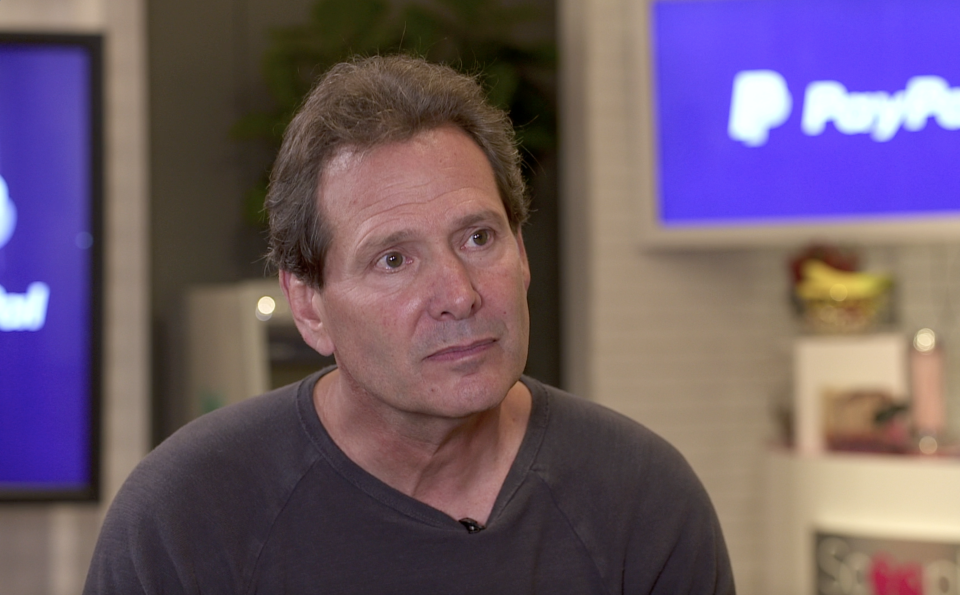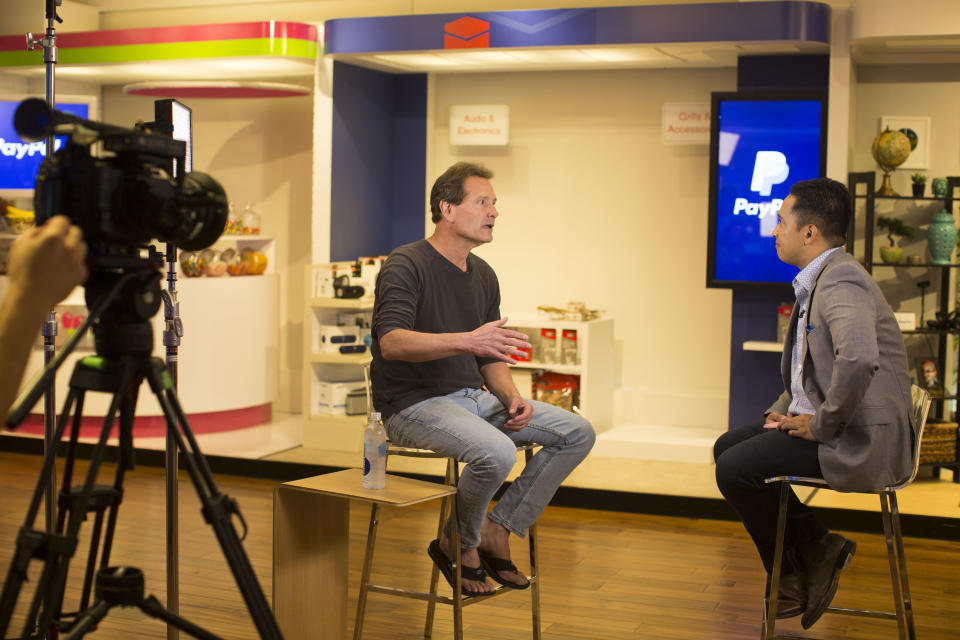PayPal CEO: ‘It’s expensive to be poor’
PayPal CEO Dan Schulman wants to make it easier for people, including those who live outside the financial system, to manage and move their money.
“There’s a saying that it’s expensive to be poor,” Schulman told Yahoo Finance in a recent interview at PayPal’s San Jose, California headquarters. “You want to cash a check, send money to a loved one, get credit, even pay your bills. For those who are outside the financial system — and there are over 70 million adults in the U.S. and over 2 billion people in the world — those basic consumer transactions can be incredibly time-consuming — you stand in line for 30 to 45 minutes — and very expensive.”
While the dollar costs of executing a financial transaction may seem reasonable for most, they can be quite high for those with very little income.
“On average, an underserved consumer spends 10% of their disposable income on unnecessary fees and interest rates,” he added. “So democratizing financial service is basically saying the following: We want managing and moving your money to be a right for all citizens, not just the privileged, or the affluent.”
Schulman’s mantra may sound sentimental, but it’s also pivotal to PayPal’s (PYPL) strategy as it tries to continue a winning streak. Revenues during the company’s most recent quarter soared 20% to $3.14 billion. Its stock is up 37% so far this year.

Since Schulman joined PayPal from American Express (AXP) in 2015, the 59-year-old chief executive has been aggressive in expanding PayPal’s reach. In 2015, for instance, he pushed for the $890 million acquisition of Xoom, a service that lets people digitally send money, otherwise known as “remittances,” abroad for nearly half the amount traditional remittance services charge. This July, PayPal purchased TIO payments, a Canada-based bill payment firm, as a way of offering people an attractive one-stop shop for them to pay all their bills online, from utility bills to car payments. The company also acquired Swift Financial, a small business lender, in August.
PayPal has also pushed properties like popular peer-to-peer payments app Venmo. Since it acquired Venmo’s parent company Braintree in 2013, the popular app has been on a tear. The app, which lets smartphone users send money to one another, processed $8 billion dollars in transactions during the second quarter, up 100% year-over-year. Although, it hasn’t generated significant revenues yet. However, that could change soon, Schulman says.
“What we want to do to monetize Venmo is to add more and more capabilities,” he explained. “Anywhere you see a PayPal merchant, you can click on that button, and actually use your Venmo account to check out at that merchant. Then we’ll monetize that transaction exactly the same way we monetize a PayPal transaction. So if you buy something, it goes right into your [app’s social] feed. And you can say, ‘got this great deal at this merchant’ and then your friends will know about it. So merchants are really excited about it, and the same time, we get to monetize.”
Trump and cross-border trade
Still, PayPal’s global expansion seems somewhat at odds with President Trump’s “America First” stance. Since Trump took office, the 71-year-old businessman has been vocal about closing borders. He’s even proposed tariffs which would hinder international trade. Given cross-border trade accounts for 22% of all PayPal transactions, is Schulman worried?
“I think that the world is going to remain a very interconnected place. I don’t think there’s any getting away from that,” Schulman contended. “The internet has brought us closer together. I think cross-border trade is going to continue to grow substantially. I think there may be certain trade agreements that can be renegotiated, one way or another. But, the underlying fundamental trade of the world coming closer together, cross-border trade exploding in growth, I think will continue.”

Schulman added that he doesn’t expect PayPal’s revenues to suffer, given that the vast majority of PayPal transactions are smaller transactions and likely won’t be subject to Trump’s cross-border-related policies.
In fact, Schulman remains hugely bullish that the financial services industry will see more innovation and change over the next five years than in the last 30 years, driven by the ongoing proliferation of mobile internationally and the digitization of money.
“As you look into the future, less and less of our transactions will happen from cash and more and more will happen in our mobile phones,” he said. “In fact, even card swipes or card inserts will start to come down and more and more will be substituted by mobile payments.”
—
JP Mangalindan is a senior correspondent for Yahoo Finance covering the intersection of tech and business. Email story tips and musings to jpm@oath.com. Follow him on Twitter or Facebook.
More from JP:

